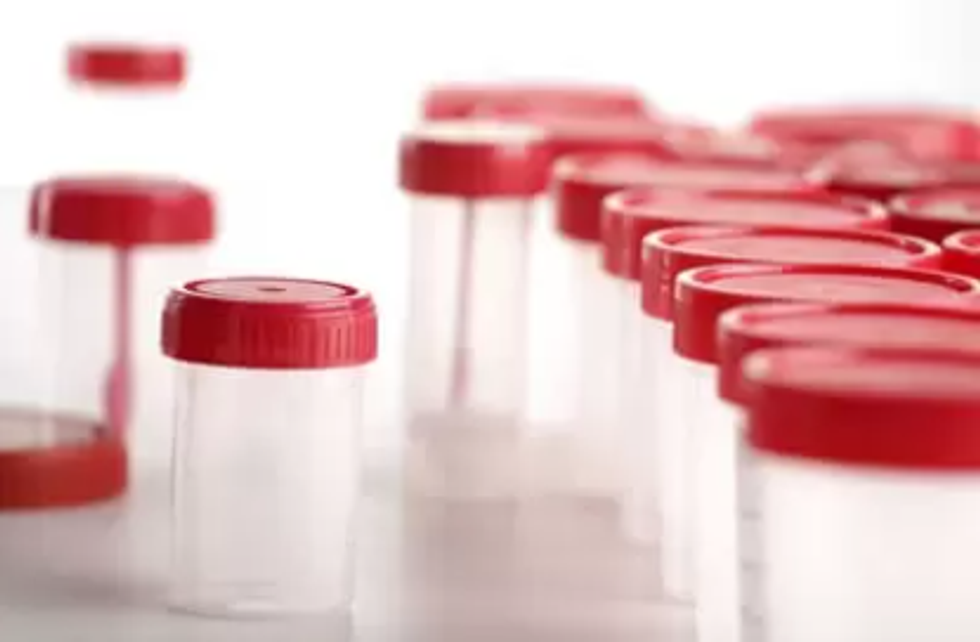Learn about the importance of specimen cups in medical research and diagnostics. Discover how these containers help ensure sample quality, protect patient safety, and provide accurate test results. Miniplast specializes in the production of high-quality specimen cups for medical and laboratory use.
A specimen cup is a container that is used to collect and transport samples of bodily fluids and tissues for medical research purposes. These cups are used in a variety of medical settings, including hospitals, clinics, laboratories, and research facilities. They are an essential tool for medical professionals, as they enable them to collect samples safely and securely, without risk of contamination or damage to the sample.
Specimen cups are designed to be sterile, leak-proof, and easy to use. They are made from a variety of materials, including plastic, glass, and stainless steel. Plastic specimen cups are particularly popular because they are lightweight, affordable, and disposable, which makes them convenient for single-use applications.
The most common types of specimens collected in these cups include urine, blood, saliva, and stool. Other types of specimens, such as tissue samples, may also be collected in specimen cups. These samples are typically analyzed in a laboratory setting to help diagnose and monitor medical conditions, track the progression of diseases, and identify potential health risks.
One of Mini-Plast's popular products is the Urine Collection Container with a needle for vacuum tube. This container is designed for urine collection and features a screw-on lid that seals the container tightly to prevent leakage. In the lid, there is a cavity with an integrated metal needle that is used to take the urine from the cup with a vacuum test tube. The container is made from high-quality plastic (PolyPropylene) and has a clear, transparent design that allows for easy monitoring of urine collection. The vacuum container is compatible with the standard vacuum test tubes and is widely used in clinical settings.
Another Mini-Plast product is the Urine Collection Container with a 2 Openings Cap. This container is designed for the collection of urine samples in 2 different ways: the urine can be sampled with a vacuum tube by pressing it against the integrated needle. The urine can also be sampled with a diagnostic urine stick which is put into the urine through the top opening that is on the cap. This top opening has a secure snap-on cap that prevents leaks and maintains sample integrity during transport.
Mini-Plast also offers 24 hours Urine Collection Containers which are designed for the collection of all urine produced in a 24-hour period. These containers are typically used for diagnostic tests that require a complete 24-hour urine sample, such as tests for kidney function or hormone levels. The containers are made from high-quality PolyEthylene and are designed to be easy to use and transport, with a secure screw-on lid that ensures sample integrity.
There are many reasons why specimen cups are necessary in medical research. Firstly, they allow medical professionals to collect and transport samples safely and efficiently. Without specimen cups, samples could become contaminated or damaged during collection, which could lead to inaccurate test results or the need for repeated tests. Specimen cups also make it easier to transport samples to laboratories for analysis, which can be critical for time-sensitive medical conditions.
In addition to ensuring sample quality, specimen cups are also important for patient safety. Using a sterile, disposable specimen cup can help prevent the spread of infections, particularly in hospital and clinical settings where patients may be vulnerable to infections. By collecting samples in a secure, leak-proof container, medical professionals can minimize the risk of accidental spills or exposure to potentially hazardous materials.
Overall, specimen cups play a vital role in medical research, allowing medical professionals to collect and transport samples safely and securely. Whether used in hospitals, clinics, or research facilities, specimen cups are an essential tool for anyone involved in medical research, helping to ensure accurate test results, protect patient safety, and advance our understanding of the human body and its many health conditions.
There are different types of specimen cups available depending on the type of sample that needs to be collected. For example, urine specimen cups typically have a screw-on lid and a wide mouth for easy collection and handling of the sample. Blood specimen cups, on the other hand, may have special features such as anticoagulants or preservatives to help preserve the integrity of the sample during transport.
In addition to their use in medical research, specimen cups are also commonly used in drug testing and workplace drug screening. Urine specimen cups are used to collect samples for drug testing, and they are often designed to be tamper-evident to prevent cheating or manipulation of the sample.
Specimen cups may also be used in veterinary medicine to collect samples from animals for diagnostic purposes. Veterinary specimen cups may be similar in design to those used in human medicine, or they may be designed specifically for animal samples.
In conclusion, specimen cups are a crucial component of medical research and diagnostics, allowing for safe and efficient collection and transport of bodily fluids and tissues. They are designed to ensure sample quality, protect patient safety, and provide accurate test results. With their wide range of applications, from drug testing to veterinary medicine, specimen cups are an indispensable tool in the field of healthcare.
Miniplast is a company that specializes in the production of plastic medical and laboratory products, including specimen cups. Their products are made from high-quality materials and are designed to meet the rigorous standards of the medical and laboratory industries. By providing reliable, high-quality specimen cups, Miniplast is helping to support medical research and improve patient care.


















